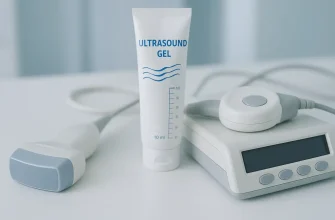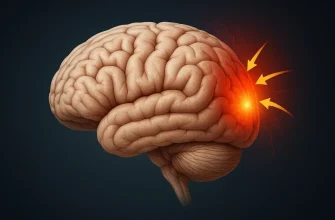Upper left abdominal pain refers to discomfort or sharp sensations occurring in the upper-left quadrant of your abdomen. This area contains several vital organs, including the stomach, spleen, pancreas, left kidney, and part of the colon. Pain in this region can be mild and temporary or indicate a more serious underlying health condition. The severity of the pain can vary from a dull ache to intense, stabbing pain, and it may come and go or be persistent. Some people also experience additional symptoms like nausea, vomiting, fever, or changes in bowel movements.
Common Causes of Upper Left Abdominal Pain
| Cause | Percentage (%) |
|---|---|
| Gastritis | 30% |
| Kidney Stones/Infections | 20% |
| Pancreatitis | 15% |
| Spleen Issues | 10% |
| IBS/Diverticulitis | 15% |
| Other Causes | 10% |
This chart highlights the most common causes of upper left abdominal pain. Gastritis is the leading cause, followed by kidney-related issues and pancreatitis. If experiencing persistent pain, medical consultation is advised.
Understanding the potential causes of upper left abdominal pain is crucial for identifying whether it requires immediate medical attention or can be managed with lifestyle changes and over-the-counter treatments. Since this area houses multiple organs, pinpointing the exact cause can be challenging without proper medical evaluation.
Common Causes of Upper Left Abdominal Pain
1. Gastritis
- Symptoms: Burning pain, bloating, nausea, indigestion, and a feeling of fullness after small meals.
- Causes: H. pylori infection, NSAIDs, stress, excessive acidic food intake, or alcohol consumption.
- Treatment: Antacids, H2 blockers, proton pump inhibitors (PPIs), and lifestyle modifications such as dietary changes and reducing stress.
- Prognosis & Cost: Gastritis is generally treatable with medication and lifestyle changes. The cost of treatment varies, with over-the-counter antacids costing $5-$20 and prescription PPIs ranging from $50-$200 per month.
2. Pancreatitis
- Symptoms: Severe, persistent pain radiating to the back, nausea, vomiting, fever, and rapid pulse.
- Causes: Alcohol use, gallstones, high triglycerides, certain medications, or autoimmune conditions.
- Treatment: Hospitalization, IV fluids, pain management, and addressing the underlying cause.
- Prognosis & Cost: Acute pancreatitis may resolve within a few days with treatment, but chronic cases require long-term management. Hospitalization costs can range from $5,000-$20,000, depending on severity.
3. Spleen Enlargement or Rupture
- Symptoms: Sharp pain, tenderness, left shoulder pain, dizziness, and low blood pressure in severe cases.
- Causes: Trauma, infections (e.g., mononucleosis), or blood disorders like leukemia.
- Treatment: Monitoring, pain relief, or surgery in cases of rupture or severe enlargement.
- Prognosis & Cost: Minor cases may heal with rest, while severe cases requiring surgery can cost $10,000-$30,000.
4. Kidney Stones or Infection
- Symptoms: Severe flank pain, blood in urine, frequent urination, fever, and nausea.
- Causes: Dehydration, high sodium intake, urinary tract infections (UTIs), or metabolic disorders.
- Treatment: Increased fluid intake, pain relief, and in some cases, medical procedures like lithotripsy.
- Prognosis & Cost: Small stones may pass naturally, but larger ones require lithotripsy or surgical removal, costing between $2,000-$7,000.
5. Irritable Bowel Syndrome (IBS) or Diverticulitis
- Symptoms: Cramping, bloating, changes in bowel movements, and discomfort after eating.
- Causes: Stress, poor diet, food intolerances, or infection in diverticula.
- Treatment: Dietary changes, probiotics, fiber intake, medications for symptom relief, and sometimes antibiotics.
- Prognosis & Cost: IBS requires ongoing management, while mild diverticulitis can be treated with medication costing $50-$200 per month.
When to See a Doctor
Seek immediate medical attention if you experience:
- Severe or worsening pain.
- Persistent vomiting or inability to keep fluids down.
- Blood in stool or vomit.
- Fever over 101°F (38.3°C).
- Unexplained weight loss or extreme fatigue.
Diagnosis and Tests
Your doctor may perform:
- Physical exam: Checking for tenderness, swelling, or organ enlargement.
- Blood tests: To detect infection, inflammation, or kidney issues. Costs range from $50-$200.
- Imaging (Ultrasound, CT scan, MRI): To visualize organs and detect abnormalities. Prices range from $100-$1,500.
- Endoscopy or Colonoscopy: If gastrointestinal issues are suspected. These procedures cost between $1,500 and $3,000.
Treatment Options
Medications
- Antibiotics: Treat bacterial infections like H. pylori. Examples: Amoxicillin, Clarithromycin, Metronidazole ($10-$100 per course).
- PPIs & Antacids: Reduce stomach acid. Examples: Omeprazole (Prilosec), Lansoprazole (Prevacid) ($15-$150 per month).
- Pain Relievers: Over-the-counter NSAIDs like Ibuprofen (Advil, Motrin) or prescribed Naproxen (Aleve) ($5-$50).
- Enzyme Supplements: Assist digestion for pancreatic issues. Example: Pancrelipase (Creon, Zenpep) ($100-$500 per month).
Cost of Treatments in the U.S.
| Treatment | Cost (USD) |
|---|---|
| Antacids & PPIs | $15-$150/month |
| Antibiotics | $10-$100/course |
| Lithotripsy (Kidney Stones) | $2,000-$7,000 |
| Hospitalization for Pancreatitis | $5,000-$20,000 |
| Surgery for Ruptured Spleen | $10,000-$50,000 |
This chart provides an overview of treatment costs for common upper left abdominal conditions in the U.S. Expenses can vary widely based on factors such as severity, and healthcare provider.
Lifestyle Adjustments
- Balanced Diet: Avoiding processed foods, eating fiber-rich meals.
- Hydration: Drinking at least 8 glasses of water daily.
- Stress Management: Meditation, exercise, and sleep regulation.
Medical Procedures
- Surgery: Required for spleen rupture or advanced diverticulitis. Costs: $10,000-$50,000.
- Lithotripsy: Breaks kidney stones using sound waves. Cost: $2,000-$7,000.
- Endoscopic Procedures: Diagnose/treat gastrointestinal disorders. Cost: $1,500-$5,000.
Editorial Advice
Upper left abdominal pain should never be ignored, as it can indicate a minor digestive issue or a serious medical condition. Early intervention and lifestyle improvements can prevent complications. If the pain is persistent or severe, consult a healthcare provider promptly. — Reyus Mammadli, Health Care Advisor
Lifestyle Risk Factors for Upper Left Abdominal Pain
This chart highlights key lifestyle risk factors contributing to upper left abdominal pain. Managing stress, maintaining a balanced diet, and staying hydrated can help mitigate these risks.









